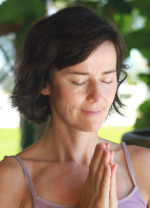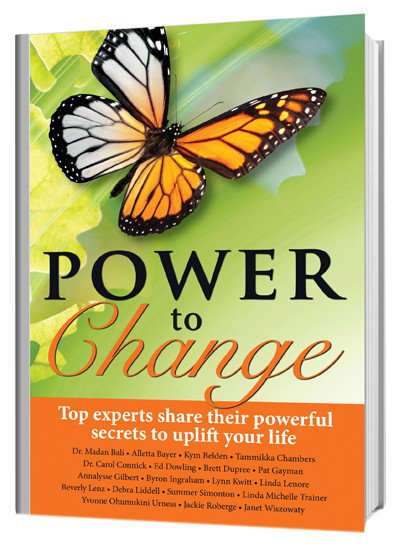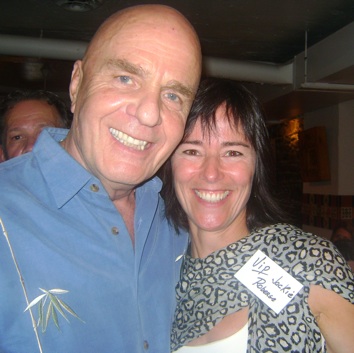 August 16, 2011
August 16, 2011 Fueling the Immune System for Faster, Deeper Healing from Cancer - Part 3 of a 4 part series
A strong, healthy immune system not only helps destroy cancer cells, along with chemo and radiation therapy, but it is also essential for on-going good health. The immune system is very complex and is continuously adapting to many physical, emotional and spiritual facets of one’s life. This article addresses various ways you can help boost your body’s immune response and keep your white blood cell count high by using a mind, body, spirit approach.
The Body
Diet and Nutrition:
Let’s start by looking at the role your diet plays in immune health. Studies point to over 30% of all cancers now being directly related to diet. You have all heard about free radicals – they are bad! Under normal circumstances, they are naturally produced and destroyed by the body’s usual functions. However excessive amounts of free radicals may exist due to exposure to carcinogens, various toxins, radiation and improper digestion. Among other things, free radicals damage immune cells and interfere with internal communication. Antioxidants are the solution for blocking free radicals. There is a lot of research now regarding the great healing power of many foods that produce antioxidant effects in the body. A few stand out as super performers and should be included in your diet on a regular, if not daily basis. This is the list of the top performers from the book Foods that Fight Cancer by Dr. Richard Béliveau; brussel sprouts, broccoli, cauliflower, cabbage, garlic, onions, spinach, watercress, flax seeds, tomato paste (and cooked tomatoes), turmeric, black pepper, fresh berries (blue, black and raspberries), dried cranberries, grapes, dark chocolate (70% cacao) citrus fruit juice, foods containing high levels of omega 3, green tea and red wine. The ones that have the biggest impact on the immune system are; turmeric (it is even more powerful when combined with black pepper), citrus fruits and omega 3 concentrated foods (fatty fish, fish oils, olive oil, hemp seeds, walnuts). For more detailed information of the impact of food on cancer cells I would highly recommend reading Dr. Béliveau’s book.
Two Key Vitamins:
Immune health is also influenced by certain vitamins. Vitamin C helps build the immune response as does vitamin D. Vitamin C is needed for the formation of certain hormones, for the production of lymphocytes (white blood cells), and to protect the body against bacteria and viruses. It is also a powerful anti-oxidant. It is water-soluble so your body is not able to store it in adequate quantities in the body. This is why it is important to ensure adequate daily intake. Six servings of fruits and vegetables per day is likely sufficient. On days when you feel you are not getting enough in your diet or if you are feeling run down you can take vitamin C supplements. Try not to consume refined sugar at the same time as your vitamin C supplement (for example the fizzy Vitamin C tablets). Vitamin C and sugar have a similar chemical structure so the two compete to enter the cells. When there is lots of sugar, less vitamin C will be absorbed and your system simply flushes it out.
Vitamin D is a powerful antimicrobial agent - in other words it helps kills various bacteria, viruses and fungi. It also helps with the absorption of calcium and has been proven effective against several forms of cancer. The best way to get vitamin D is through exposure to sun. Try to go outside without sunscreen for at least 10 minutes per day, ideally 20 minutes. In the winter, when the sun is not as strong (especially in the northern regions) supplements will likely be necessary. Liquid vitamin D is the best source and most easily absorbed. Remember sunscreens block out vitamin D and sunglasses also limit its absorption.
The Importance of Good Bacteria:
Eighty percent of the immune activity takes place in the intestines where good bacteria fights off foreign invaders and infections. Chemotherapy drugs, often kill off good bacteria so it is important to ensure you have a good source of probiotics in your diet. Yogurt companies are going crazy with claims of billions per gram but you must ensure that the bacteria is live in order to it to be effective. I suggest a probiotic supplement be taken on a daily basis. Check at your local health store for a good brand that has two strands of bacteria and at least 10 billion live bacteria. You will find them in the refrigerator section as they are live cultures.
Walk Every Day:
Research is now showing a link between moderate, regular exercise and a strong immune response. Exercise, especially weight bearing exercise, is good for stimulating the production of bone marrow. Bone marrow is the source of all immune cells for the body. As you exert weight on the long bones of your body it helps keep your bones strong and stimulates production of the bone marrow to fuel immune cell production. Choose an activity that you love to do; walk, jog or dance. Then find someone that you enjoy doing it with – a friend, your dog or do it on your own and make it your time to focus on your body and empty your mind!
If you are just too tired to exercise, try just walking around the block everyday, maybe twice a day. Then increase the number of times around the block as your energy builds and your stamina increases. There may be days when even this is too much. On those days, simply honour the messages from your body, without being hard on yourself, and give your body the love and rest it needs.
The Emotional Angle
Attitude Does Matter!
Now let’s look briefly at the emotional side of the immune building story. Research has shown that immune response is affected by emotions. Simply put, you can think of the immune system – its strength and vitality - as a reflection of your emotional state. Everyone has heard stories of people dying after their loved ones pass away, otherwise known as dying of a broken heart. Well it may be more accurate to say they died of a ‘depressed’ immune system. Studies have shown the link between specific negative emotions and the immune response. The most detrimental emotions are feelings of hopelessness or helplessness, like feeling trapped or stuck, with no control over the outcome of events. The next article in this series will address the emotional side of healing in more detail but in summary the more hope, the more joy, the more love and laughter you can bring into your life during your healing journey the more you are encouraging and stimulating your immune system.
The Spiritual Aspect
The Healing Power of Meditation:
I started meditating about 15 years ago. The first and most impressive benefit I experienced was the boost in my immune system that the meditation facilitated through the deep rest it provides. I went from having back to back colds to feeling healthy and almost never getting sick. Over the years, I also noticed that when I did get an occasional cold, it do not knock me out. I experienced only minor symptoms and they passed quickly.
So if there is one thing I would recommend you add to your daily routine is two sessions of 10 to 20 minutes of silence. If quietening your mind sounds like an insurmountable challenge, then I suggest you find a good guided meditation. On my website I have a 15 minute immune booster guided relaxation and imagery session that you can listen to free of charge. The imagery (visualizing and stimulating the other senses) part of the session is also very beneficial as you are literally sending and reinforcing powerful messages to your body. To see how quickly the body responds to our thoughts you just have to think about watching a scary movie – as your fear increases so does your heart rate and your palms automatically start to sweat. Similarly, as you imagine your immune cells being mobilized, your body is automatically receiving and acting on the message.
The Importance of True Relaxation:
The other important thing to understand is that when we exercise, either the mind or the body, we are stimulating the sympathetic nervous system. Even when we relax or de-stress it is often while doing things that continue to stimulate us like having a glass of wine, watching TV or exercising – again exciting the sympathetic nervous system. This is the part of the nervous system that is like the gas pedal in a car. Because of our busy lifestyles, the sympathetic system is usually over stimulated and an internal imbalance is created. The parasympathetic nervous system on the other hand is stimulated when we are resting, quiet or relaxed and is usually under stimulated or neglected. Think of it as a muscle, if it does not get used enough it will get weak and won’t be as responsive. A daily meditation or relaxation practice (even if you start with just 5 minutes) allows you to strengthen your parasympathetic system and stimulate your immune or relaxation response. This stimulation helps creates more balance and a stronger immune response.





Reader Comments